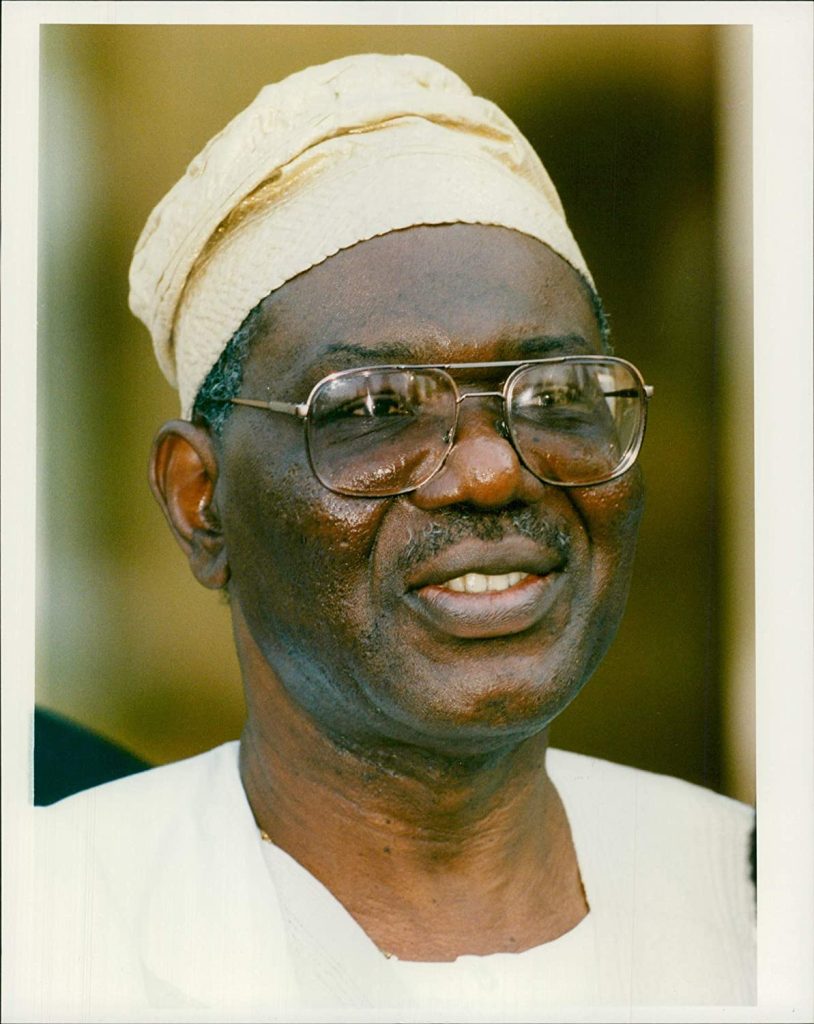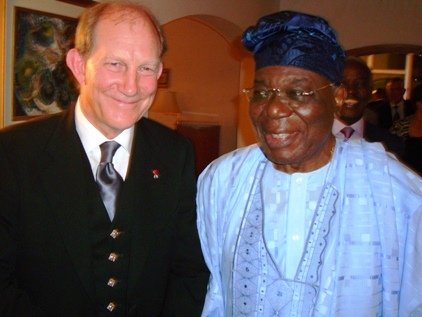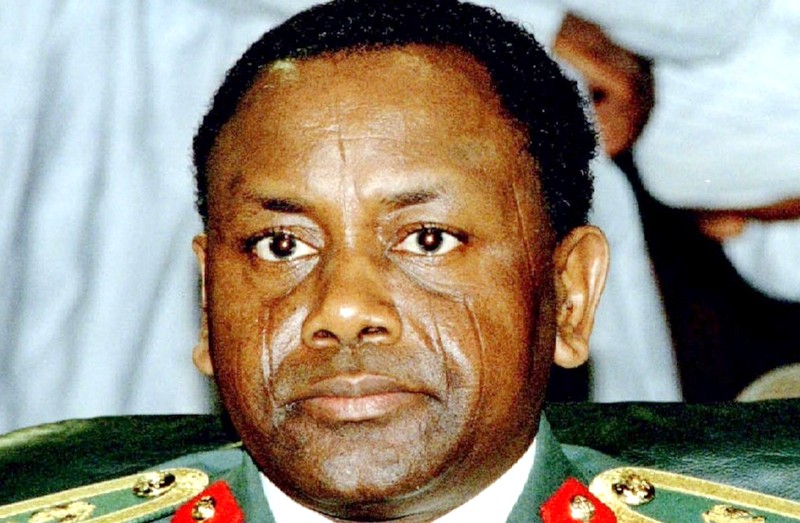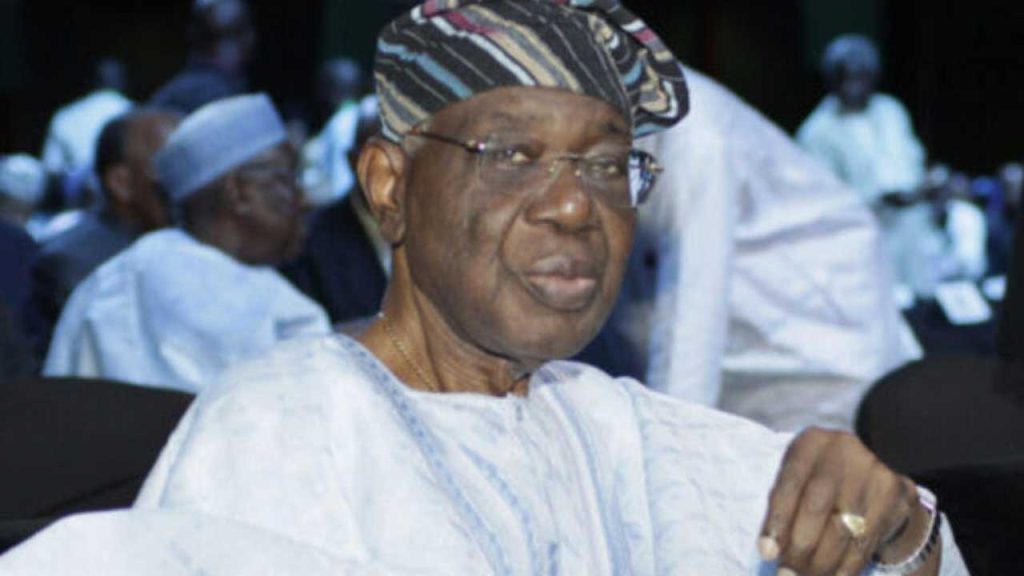Ernest Shonekan isn’t a name most young generations will know. After all, his time in Nigeria’s most important office was short. As one of the country’s former Heads of State, Shonekan ruled for 82 days. Interestingly, he was meant to move to the villa, the head of the state’s residency, on the day his tenure ended.
However, after leaving office, he didn’t stop pursuing what he aimed to achieve politically. While some praise him as a man of good intentions, some claim he was only an opportunist who seized the chance of his connection with military leaders to achieve his interests. Which of these is the truth about Ernest Shonekan? You will find out here.

Who was Ernest Shonekan?
From August 26, 1993, to November 17, 1993, Chief Ernest Adegunle Oladeinde Shonekan, also known as Ernest Shonekan, led Nigeria as interim head of state. He was a Nigerian statesman and lawyer who earned several chieftaincy titles in his lifetime. This includes Abese of Egbaland from 1981 until his death in 2022.
Shonekan took over the largest black democracy in the world without being elected or planning a coup. It was General Ibrahim Babangida who selected him to lead the military government after a botched attempt to transition the country from military to civilian authority. This was because Shonekan, as the head of government affairs, was tasked to oversee a smooth and peaceful election transition into democracy, which left a lasting effect on the then-junta commanded by Babangida.
So, Ernest Shonekan became the first Head of State to be appointed in Nigeria. His predecessors had either had the post after a coup or election. However, opinions are mixed regarding his qualifications and the justification for his selection. Even though his tenure as the leader of the Interim National Government was brief, he declared during his inauguration that he was dedicated to returning the nation to peace and stability.
Nevertheless, some Nigerians argued that he was an opportunist who took advantage of his friendship with military commanders. Regardless, his appointment was, even though for a brief moment, a stabilizing force for Nigeria’s economy and peace.
Read: The Fascinating Life of Herbert Macaulay, a Nigerian Nationalist
Ernest Shonekan’s Early Life and Education
Born on May 9, 1936, Ernest Shonekan was born and bred in Lagos. He was one of six children born into the family of an Abeokuta-born government officer.
Shonekan completed his secondary school at Lagos’ C.M.S. Grammar School before enrolling in the University of London, where he graduated with a Bachelor’s degree in Law. He was also called to the bar here. He attended Harvard Business School as well.
Ernest Shonekan and His Business Career
In 1964, Shonekan joined the United Africa Company of Nigeria, which at the time was a division of the United Africa Company and was a significant player in British colonialism. It was established in 1929 and was originally a British corporation that conducted business in West Africa throughout the 20th century. The business, known as UAC PLC on the Nigerian Stock Exchange, has expanded into one of the largest African-managed corporations on the continent. It specializes in agriculture, real estate, logistics & warehousing, manufacturing, and services.
He moved up the corporate ranks and was appointed assistant legal advisor. Shonekan joined the board of directors at age 40, earning a promotion to deputy adviser. In 1980, he was appointed chairman and managing director. Since then, he has developed a vast network of contacts in both international business and politics.

Controversies Surrounding Babangida’s Appointment of Ernest Shonekan as Head of State
According to some critical studies, neither Shonekan’s qualifications as a professional nor his loyalty to his country earned him the position of head of state. Instead, his appointment was justified by his racial heritage and chieftaincy rank. He was seen as a leader who could prevent more internal conflict in the country.
Then, it was perceived that this happened because Chief Moshood Abiola, who had declared himself the winner following the 1993 election and the military’s decision to invalidate it, was born and raised in Abeokuta. This led to nationwide unrest as it raised concerns that Nigeria was on the verge of another civil war. And tensions rose, especially in the country’s southwest.
Another debate stated Shonekan’s appointment was to demonstrate that the Yoruba group had not been politically marginalized.
Read: Who Is Thomas Sankara? 15 Interesting Facts You Never Knew
Ernest Shonekan’s Interim Government
Ernest Shonekan was practically powerless to act. The main goal of his tenure was to develop an excellent democratic transition plan, but he could not do it. This was attributed to distractions like labor union strikes and protests. In addition, the public was mostly uninterested in him and his administration. This is because many people believed he had no business leading a troubled Nigeria under the rule of a military dictatorship that was responsible for the very mess he was expected to fix.
Since the elections were thrown out, his attempts to campaign for debt reduction were rejected by Western nations. He also lacked complete command over the military forces.
The government started an audit of the NNPC, a massive oil company with several operational inefficiencies. And while serving as Nigeria’s interim head of state, Shonekan worked as a Royal Dutch Shell executive.
During this time, Shonekan tried to establish a timeline for the departure of troops from the Liberian peacekeeping operation of ECOMOG. But General Sani Abacha, who served as both the head of the defense staff and the minister of defense, had total authority over the armed forces, and he was not his friend.

Ernest Shonekan’s Life After Interim Government
Eighty-two days into his term in office, in November 1993, Abacha led a successful political coup to remove Shonekan. The following year, he established the Nigerian Economic Summit Group. It was an advocacy and research organization promoting the private sector-driven growth of the Nigerian economy. Following the events of his overthrow, Shonekan became a well-known elder statesman.
The Nigerian Economic Summit Group hosts an annual conference that gives the public and private sectors a chance to assess the success of their efforts at economic change. The summits also discuss successful strategies for handling problems that might have impeded the execution of effective policy. In 2021, the summit’s 27th edition took place.
It is appropriate that his lasting impact will be in business rather than in Nigerian politics. Shonekan may be a “guru” in the business world, but he did not exactly fit in when tested in the dirty and brutally selfish world of Nigerian politics. Although he struggled to do better and achieve his aims in politics, it was never successful. But that was not all he could have done for his country. It was good enough that he still managed to make an impact in other areas, such as the documentation of the private sector that he helped establish.

Ernest Shonekan’s Death
On January 11, 2022, Ernest Shonekan passed away in Lagos, where he was born at 85. He was the third-oldest living Nigerian Head of State, behind Yakubu Gowon and Elizabeth II.
Other Facts About Ernest Shonekan
Below are some of the facts not listed or mentioned above about Ernest Shonekan:
Ernest Shonekan’s Family
You must be wondering if he ever had any family, as we have not talked about them since the beginning of this article. However, Ernest Shonekan was married to Margaret Shonekan, and the couple had four children: Adeboye, Korede, Kemi, and Yele. There, you have it.
Shonekan Delivered a Resignation Address
Ernest Shonekan didn’t just leave office; he tendered a resignation address on November 17, 1993. According to parts of his address, under his leadership, the national government worked extremely hard to bring honor to the government and took action to combat indiscipline and corruption. But it wasn’t successful.
The Nigeria High Court Ruled that Shonekan’s Interim Government Was Illegal
On November 10, 1993, just days before Shonekan’s resignation, a high court ruled that the interim administration was illegal on the grounds that Shonekan’s appointment had been made after Babangida stepped aside.
Before you go…
Hey, thank you for reading this blog to the end. I hope it was helpful. Let me tell you a little bit about Nicholas Idoko Technologies. We help businesses and companies build an online presence by developing web, mobile, desktop, and blockchain applications.
As a company, we work with your budget in developing your ideas and projects beautifully and elegantly as well as participate in the growth of your business. We do a lot of freelance work in various sectors such as blockchain, booking, e-commerce, education, online games, voting, and payments. Our ability to provide the needed resources to help clients develop their software packages for their targeted audience on schedule is unmatched.
Be sure to contact us if you need our services! We are readily available.
We Design & Develop Websites, Android & iOS Apps
Looking to transform your digital presence? We specialize in creating stunning websites and powerful mobile apps for Android and iOS. Let us bring your vision to life with innovative, tailored solutions!
Get Started TodayPut Your Tech Company on the Map!
Get featured on Nicholas Idoko’s Blog for just $200. Showcase your business, boost credibility, and reach a growing audience eager for tech solutions.
Publish Now










